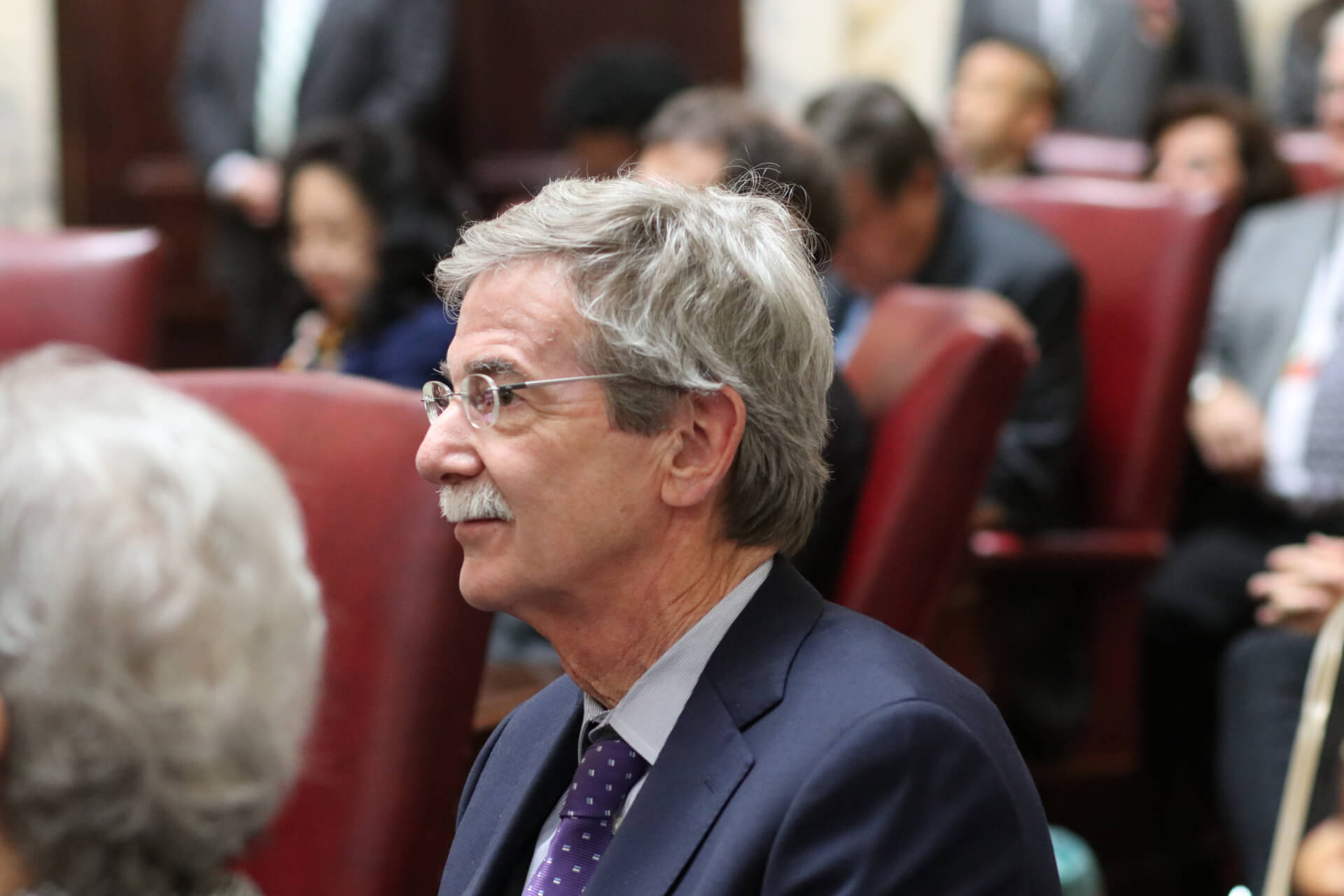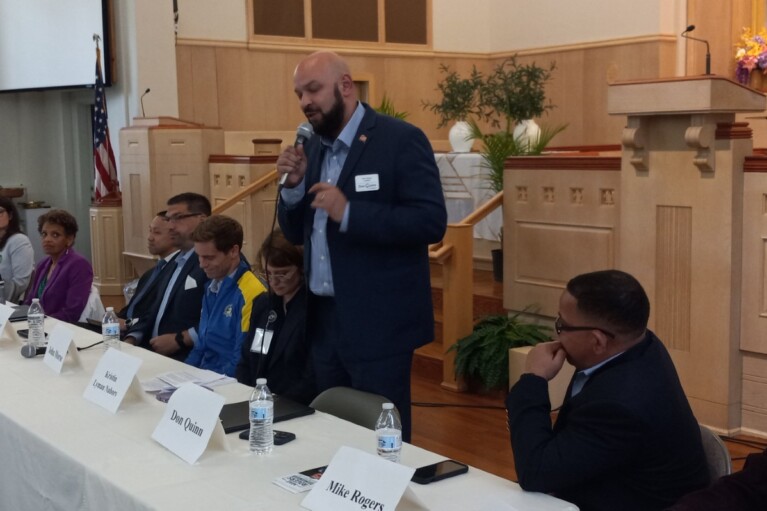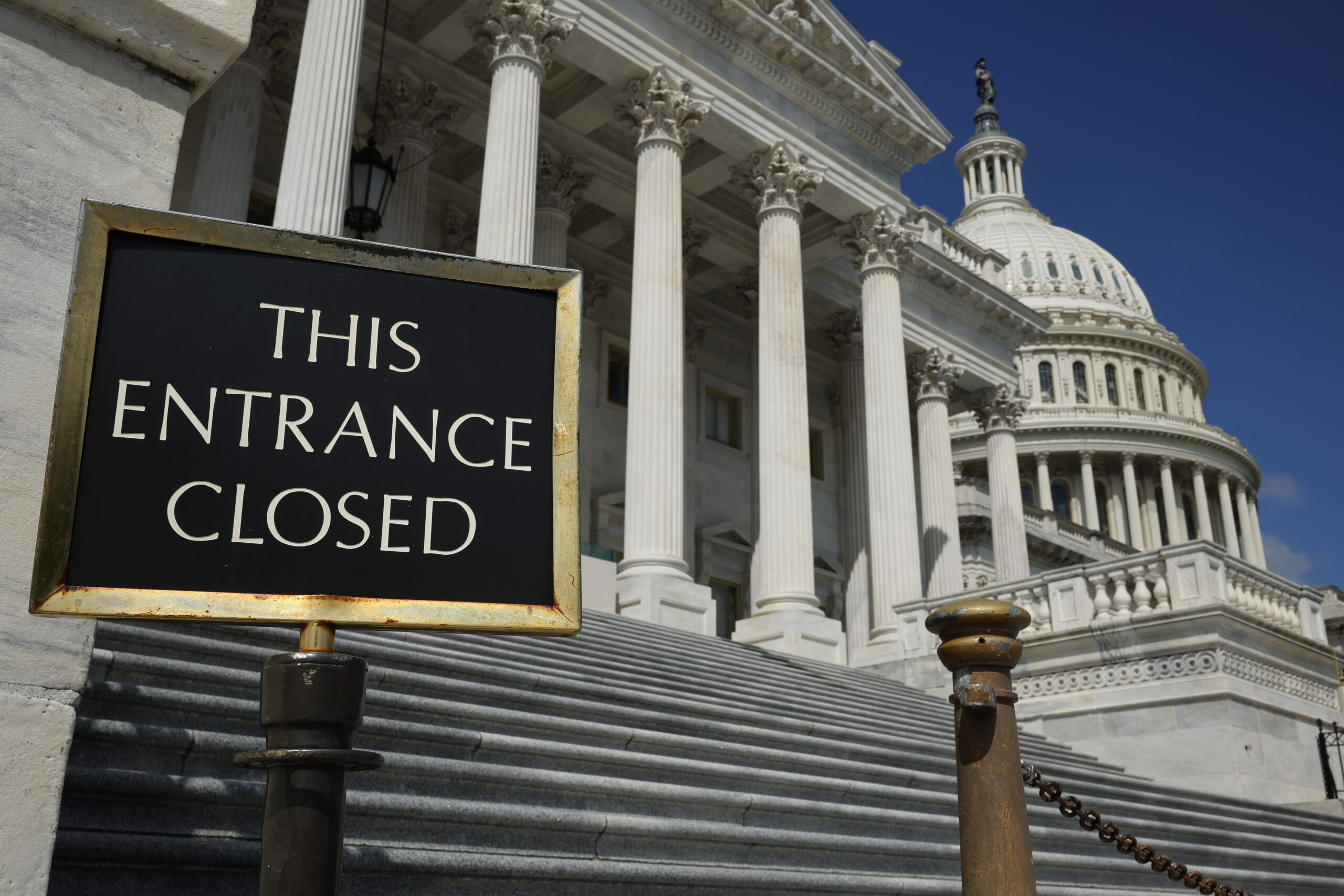Frosh Creates Task Force to Help Struggling Marylanders Navigate the Civil Justice System

Joy Fowler is a 26-year-old single mother who had finally found her way: After experiencing eviction and homelessness, she entered a rapid-rehousing program and found a job she loved that allowed her to keep up with her bills and get off of public assistance.
“I’ve always been a hard worker through all my struggles,” she told Maryland Attorney General Brian E. Frosh (D) during a virtual news conference Thursday. ”I finally felt like I could sustain myself.”
Fowler, like many others, found all of that uprooted by COVID-19. She was temporarily laid off and made to apply for unemployment insurance.
“I had no income after working so hard to get off public assistance,” she explained. “It was challenging for me to be motivated to get back on.”
Fowler struggled with the state’s unemployment insurance application for two months before receiving any assistance, in the meantime calling anyone she could think of to help her with food and supplies.
She said she felt defeated.
“People are willing to do the work and push through,” Fowler said. “There are just so many obstacles we have to go through just to get assistance.”
With Fowler and thousands of others across the state in mind, Frosh announced the creation of the COVID-19 Access to Justice Task Force Thursday, an initiative to help Marylanders navigate the civil justice system as they face housing disputes and the denial of public benefits resulting from the major economic downturn brought on by the pandemic.
Since the state of emergency was declared on March 5, over 750,000 Marylanders have filed unemployment claims — and that’s only accounting for those who can access the new and reputedly tricky system.
In partnership with the Maryland Access to Justice Commission, the task force has assembled more than 40 state experts to find ways to bridge these legal gaps for Marylanders facing new hardships.
U.S. Sens. Benjamin L. Cardin (D-Md.) and Chris Van Hollen (D-Md.), along with Congressmen Jamie B. Raskin (D-Md.), John P. Sarbanes (D-Md.), Kweisi Mfume (D-Md.), C.A. Dutch Ruppersberger (D-Md.), David J. Trone (D-Md.), Anthony G. Brown (D-Md.) and House Majority Leader Steny H. Hoyer (D-Md.) will serve on the task force’s advisory committee.
Frosh said the task force has done its best to include individuals from communities who have been suffering the most, and has formed a policy and equity subcommittee to be chaired by Zenita Wickham Hurley, the Chief Counsel for Civil Rights in the attorney general’s office.
The task force plans to meet three times before December in order to have recommendations ready for the 2021 legislative session. Frosh said they are set to meet for the first time within the next few weeks.
He explained that a series of subcommittees, like Wickham Hurley’s, is expected to meet more frequently.
On the list of considerations for the task force is the possible implementation of “Civil Gideon” — or the right to an attorney not just in criminal cases, but in civil matters, as well.
Frosh said the program would have a high price tag but would be worth it for the sake of Marylanders keeping their children and homes.
“If we could find the money, I, personally, would want to do it in a heartbeat,” he said.
Sarbanes said legislation surrounding Civil Gideon has been introduced in Congress within the past few months.
Inequities ‘burst into flames’
Reena Shah, executive director for the Access to Justice Commission and task force vice-chair, said that stories like Fowler’s “demonstrate how navigating the civil justice system without legal information or help is disempowering and unjust.”
“In fact, we know that Marylanders lose their civil cases and therefore get evicted, have their wages garnished, do not receive lifelines like food stamps or unemployment benefits, not because they did anything wrong — but because they did not have the legal information or help they needed, and this already happened before COVID-19 hit,” Shah said.
Shah said she expects the courts to be overwhelmed with civil filings once they eventually reopen. Stays on foreclosures and evictions in the state are set to end next month.
“Civil legal aid must be a vital component of the public recovery from the current public health and economic crisis,” Shah declared. “Equal justice under law demands this.”
Frosh explained that the task force was created after the realization that the pandemic was going to “hit our nation and hit it hard,” noting that not only is the country dealing with the social and economic repercussions of the ongoing public health emergency but also has been witness to weeks of civil unrest resulting from the recent deaths of George Floyd, Breonna Taylor and Ahmaud Arbery.
“These deaths and the pandemic have laid bare the facts that, one: in Maryland today, they’re hundreds of thousands of people who suffer from discrimination, lack of educational or employment opportunities, poor health care; two: hundreds of thousands are imminently facing joblessness, homelessness and hunger; three: African Americans, Hispanics — people of color are disproportionately represented among these vulnerable populations; and finally, hundreds of thousands more are suffering right along with them,” Frosh said.
“The pandemic has caused these issues to burst into flames.”
Frosh said civil inequities indicate problems with the legal system, which he asserted should level the playing field for citizens regardless of race or economic status.
Wilhelm Joseph, executive director of Maryland Legal Aid, agreed.
“One damning statistic of the American criminal justice system is the rate of incarceration,” said Joseph.
Despite comprising about 4% of the world’s total population, the United States has the highest incarceration rate.
The U.S. Bureau of Justice Statistics found in 2018 that the incarceration rate for Black men was 5.8 times higher than that of white men. The same study found that Black women were imprisoned at a rate 1.8 times higher than white women.
According to the U.S. Census Bureau, Black people make up just 13% of the country’s total population.
In 2019, 70% of Maryland’s prison population was Black, despite making up just 29% of the state’s total population.
The same goes for COVID-19 infections and fatalities in the state of Maryland.
Black communities have accounted for 29% of infections and 42% of deaths. Latino communities, which comprise a mere 8% of the state’s population, have seen 27% of its infections and 11% of deaths.
“Not surprisingly, those Americans who are suffering the most from the triple threat of [the] justice crisis, the economic crisis, the health crisis, are Black Americans and other people of color,” Joseph said.




 Creative Commons Attribution
Creative Commons Attribution